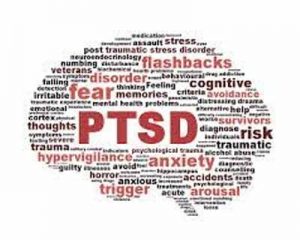- Home
- Editorial
- News
- Practice Guidelines
- Anesthesiology Guidelines
- Cancer Guidelines
- Cardiac Sciences Guidelines
- Critical Care Guidelines
- Dentistry Guidelines
- Dermatology Guidelines
- Diabetes and Endo Guidelines
- Diagnostics Guidelines
- ENT Guidelines
- Featured Practice Guidelines
- Gastroenterology Guidelines
- Geriatrics Guidelines
- Medicine Guidelines
- Nephrology Guidelines
- Neurosciences Guidelines
- Obs and Gynae Guidelines
- Ophthalmology Guidelines
- Orthopaedics Guidelines
- Paediatrics Guidelines
- Psychiatry Guidelines
- Pulmonology Guidelines
- Radiology Guidelines
- Surgery Guidelines
- Urology Guidelines
PTSD risk can be predicted by hormone levels prior to deployment, study says

Up to 20 percent of U.S. veterans who served in Iraq and Afghanistan developed symptoms of post-traumatic stress disorder from trauma experienced during wartime, but new neuroscience research from The University of Texas at Austin suggests some soldiers might have a hormonal predisposition to experience such stress-related disorders.
Cortisol the stress hormone is released as part of the body's flight-or-fight response to life-threatening emergencies. Seminal research in the 1980s connected abnormal cortisol levels to an increased risk for PTSD, but three decades of subsequent research produced a mixed bag of findings, dampening enthusiasm for the role of cortisol as a primary cause of PTSD.
However, new findings published in the journal Psychoneuroendocrinology point to cortisol's critical role in the emergence of PTSD, but only when levels of testosterone one of most important of the male sex hormones are suppressed, researchers said.
"Recent evidence points to testosterone's suppression of cortisol activity, and vice versa. It is becoming clear to many researchers that you can't understand the effects of one without simultaneously monitoring the activity of the other," said UT Austin professor of psychology Robert Josephs, the first author of the study. "Prior attempts to link PTSD to cortisol may have failed because the powerful effect that testosterone has on the hormonal regulation of stress was not taken into account."
UT Austin researchers used hormone data obtained from saliva samples of 120 U.S. soldiers before deployment and tracked their monthly combat experiences in Iraq to examine the effects of traumatic war-zone stressors and PTSD symptoms over time.
Before deployment, soldiers' stress responses were tested in a stressful CO2 inhalation challenge. "Healthy stress responses showed a strong cortisol increase in response to the stressor, whereas abnormal stress responses showed a blunted, nonresponsive change in cortisol," Josephs said.
The researchers found that soldiers who had an abnormal cortisol response to the CO2 inhalation challenge were more likely to develop PTSD from war-zone stress. However, soldiers who had an elevated testosterone response to the CO2 inhalation challenge were not likely to develop PTSD, regardless of the soldiers' cortisol response.
"The means through which hormones contribute to the development of PTSD and other forms of stress-related mental illness are complex," said Adam Cobb, a UT Austin clinical psychology doctoral candidate and co-author of the study. "Advancement in this area must involve examining how hormones function together, and with other psychobiological systems, in response to ever-changing environmental demands."
Knowing this, the scientists suggest future research could investigate the efficacy of preventative interventions targeting those with at-risk profiles of hormone stress reactivity. "We are still analyzing more data from this project, which we hope will reveal additional insights into risk for combat-related stress disorders and ultimately how to prevent them," said Michael Telch, clinical psychology professor and corresponding author of the study.
You can read the full Article by clicking on the link :
Robert A. Josephs, Adam R. Cobb, Cynthia L. Lancaster, Han-Joo Lee, Michael J. Telch. Dual-hormone stress reactivity predicts downstream war-zone stress-evoked PTSD. Psychoneuroendocrinology, 2017; 78: 76 DOI: 10.1016/j.psyneuen.2017.01.013

Disclaimer: This site is primarily intended for healthcare professionals. Any content/information on this website does not replace the advice of medical and/or health professionals and should not be construed as medical/diagnostic advice/endorsement or prescription. Use of this site is subject to our terms of use, privacy policy, advertisement policy. © 2020 Minerva Medical Treatment Pvt Ltd